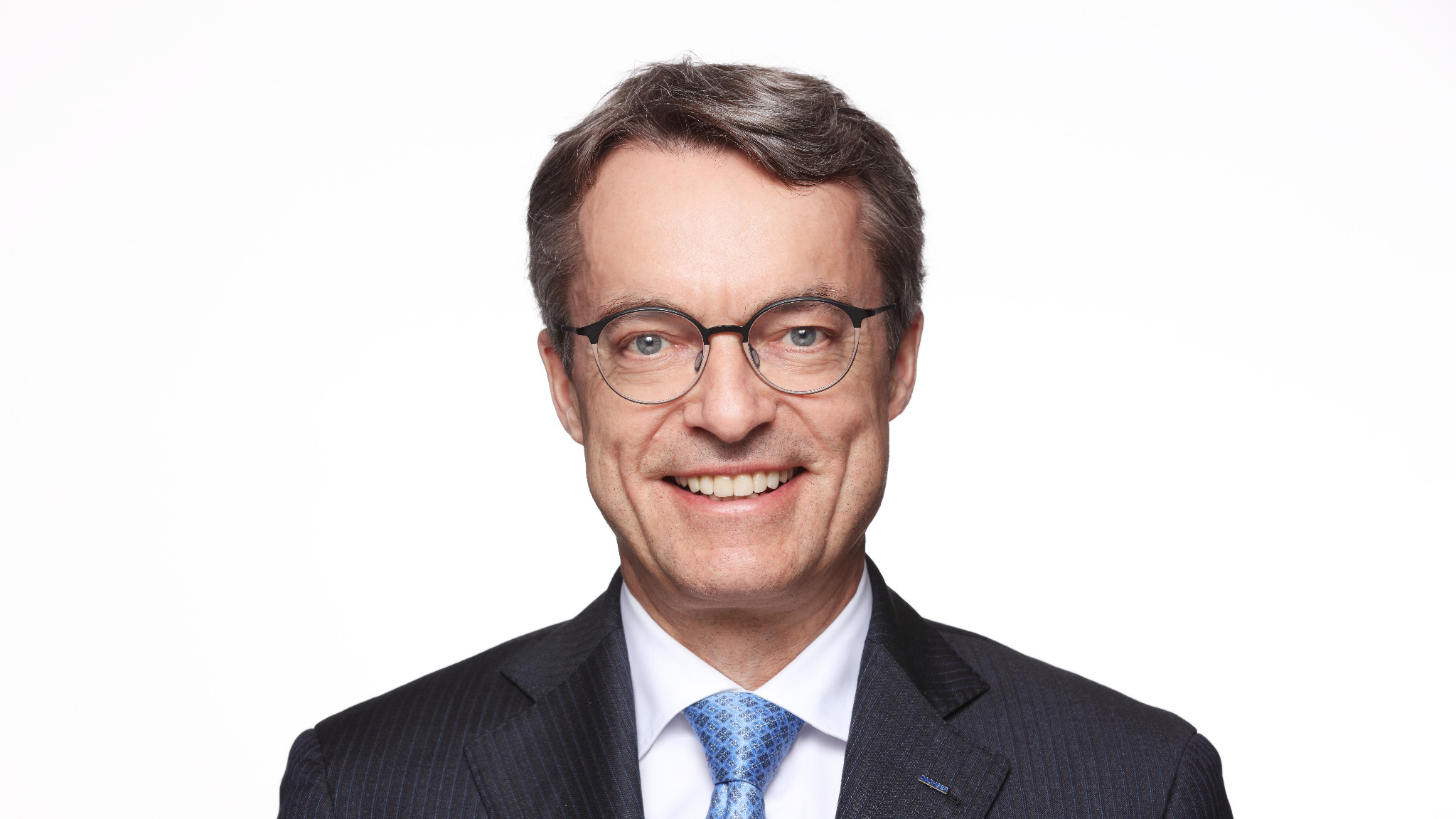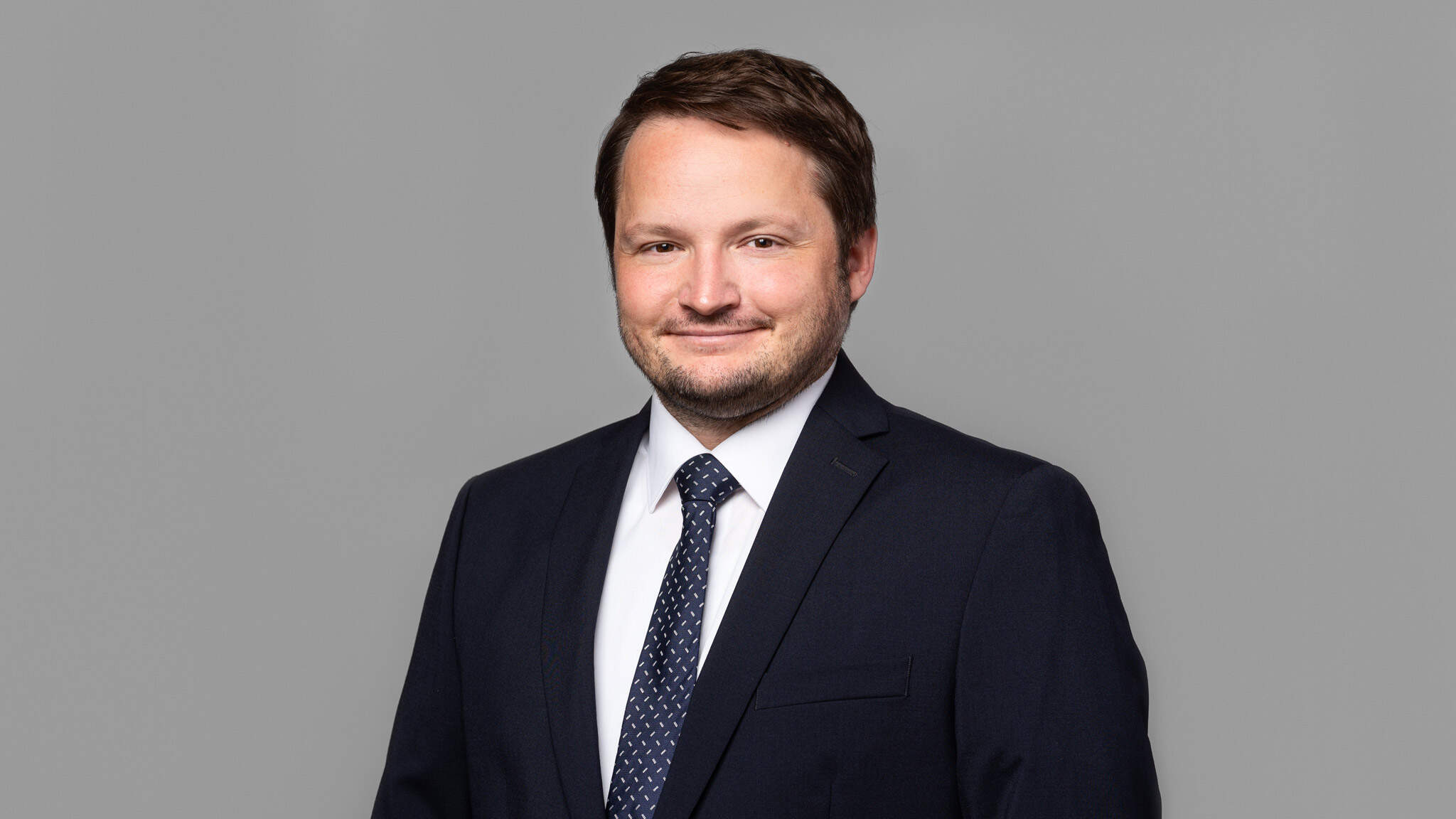Opportunities for the courageous
What will the future bring? Where are we headed? What compass guides us? It’s the beginning of a new decade, and a time to look ahead. DACHSER CEO Bernhard Simon talks about the family-owned company’s responsibility to future generations.

If we consider possible contenders for Word of the Year, “future” is probably at the top of the list, what with “Fridays for Future,” “Scientists for Future,” “Artists for Future,” “Economists for Future,” etc. Everywhere you look in politics, business, or society, everyone is using the start of the new decade as an opportunity to look ahead. While the intentions behind this idea are good, it does perhaps lead to some inflated expectations about the future. I am reminded of a particularly pertinent remark by Victor Hugo (1802–1885): “The future has many names: for the weak it means the unattainable; for the fearful, it means the unknown; for the courageous, it means opportunity.”
With these words, the French writer provided direction for how we think about the future. Meaningful change occurs when a vision is combined with realism and pragmatism to turn it into something concrete, into reality. Take climate change, for example. It is truly honorable when companies pledge to become carbon neutral. But we very rarely hear about how they intend to achieve this ambitious goal in practice—the specific plans they make, the measures they implement, the techniques they use. In their pursuit of a sustainable future, companies that outsource responsibility for solutions to offsetting agencies—which support development projects in underdeveloped regions and quantifiably counterbalance companies’ carbon footprints—still face some unanswered questions. One thing that needs to be clarified, for instance, is how such offsetting companies can sensibly invest the cash injection they would receive to actually make a long-term impact in a short space of time. And then what about the certification systems? They have to undergo critical testing to prove that they really do deliver what they promise.
The current trend in sustainability and climate policy is so powerful that it will have a tangible impact on the design of our services in the next few years; there’s no doubt about that. After all, such policies are laid down in laws, regulations, and standards. If we apply Victor Hugo’s ideas about the future to DACHSER, our goals are neither unattainable nor unknown.
Sustainability is in our DNA
Sustainability and a focus on future generations are part of the genetic makeup of DACHSER as a family-owned company, as is our overall understanding of corporate responsibility; that is, how we position and embed our business within society. Ever since day one, DACHSER has always seen the future as an opportunity. Our approach to managing our business is built around values and based on a triad of strategy, structure, and culture. This allows the DACHSER family to be part of and help shape society within a free, pluralistic democracy. True to this approach, the company has always assumed responsibility for its employees and the environment.
Things that have been par for the course at DACHSER for years are now moving up on agendas elsewhere. About a year ago, Larry Fink, CEO of global investment manager BlackRock, caused a stir when he sent an open letter to companies and corporations urging them to see their purpose not only in maximizing profits, but also in answering the pressing social and ecological questions of our time. One major reason is that young people are increasingly questioning the deeper meaning behind their work and its implications for society and the environment, something that is also a factor in their choice of employer. According to Fink, companies that succeed in breaking away from ends-justify-the-means utilitarianism and that aim to achieve much more than maximizing their financial profits are well placed to help the transition to the “new age of purpose.”
We believe that the focus must be directed back to the question of what benefits a company creates through its products and services and how it generates profits in the process. Business ethics are about much more than “donations for a good cause.” It’s not so much about what you do with profits, but first and foremost, how they are made in the first place.
DACHSER has always seen the future as an opportunity.
That is why DACHSER isn’t interested in a contrived search for purpose, which overlooks the actual goal of open and genuine interactions among companies, society, employees, and the environment. And anyone who uses “social” and “ecological” as mere labels will probably abandon them as quickly as they adopted them.
When it comes to its own “for Future” campaign, DACHSER does not need to search for or even reinvent its own meaning and purpose. DACHSER’s mission is to provide networked logistics, something it has been doing with great passion for generations. Its corporate governance is built on stable values, entrepreneurship, and the firm belief that its services can always improve its customers’ logistics balance sheet. That is where the roots of the family-owned company’s identity lie. It is what motivates us in our day-to-day business, in how we develop and structure the company, and in our approach to partnerships with customers and employees.
Against this backdrop, DACHSER has always been able to grow in a “healthy” way and will continue to do so. At the same time, however, we are also aware that growth as part of internationalization and globalization places increasingly high demands on the management and governance of the company. We recognized this as early as the 1990s, which is when we created a separate department for strategy and corporate development to handle the management of our business fields’ strategic focus programs. Furthermore, compliance has become an issue of key importance and one that must be firmly embedded in our global corporate governance structure. That involves continually raising awareness of our code of conduct, which is based on the DACHSER culture and on basic ethical standards that apply the world over.
Our rationale for creating the department is the same now as it was back then. We know there is only one way to successfully shape future-oriented, innovative logistics: we have to be as close as possible to our employees and customers in the regions, and always work with them to find the best solution within our networks—and all underpinned by our binding code of conduct. In this way, we have been able to implement a dynamic internationalization strategy while—in line with our “one world – one company – one network” motto—ensuring ever-closer integration of all our structures and processes for the benefit of our customers.

Using every opportunity to its full potential
At DACHSER, the bundling of freight services has been part of our business model from the very beginning. It is linked to a key aspect of sustainability: utilizing freight space to its full capacity, which in turn minimizes the CO2 emissions for each unit transported. To further optimize efficiency, we at DACHSER and our customers have a vested interest in making full use of all the opportunities that digitalization and IT have to offer—for customers and service providers alike.
That’s another reason why we established the Corporate Solutions, Research & Development corporate unit all those years ago: to firmly establish sustainability as a key pillar of DACHSER’s strategically managed corporate development. With a clear purpose, we will continue to press ahead with and implement any sustainable logistics solutions that make sense from a technical and economic perspective. One example is our innovation project for zero-emissions groupage deliveries in city centers, which started in Stuttgart and is now being rolled out in various cities.
Our concern is not to make headlines; our concern is the small steps we’re taking all the time to implement things across the board, which only come together to achieve the desired affect over time. And this is not a new path for us—it’s a tradition. The results have made a broad impact that is reflected in our infrastructure and logistics processes.
Part and parcel of this approach is our uncompromising commitment to quality, which leaves our customers around the world in little doubt of the value DACHSER helps add to their business. The key to this success is the fact that DACHSER, and all its employees, live and breathe the company values. In line with this mindset, DACHSER sees itself as a corporate citizen and, as such, is committed to corporate social responsibility, bringing the company’s sense and purpose into harmony in its own unique way. And what does this mean for DACHSER’s future? Allow me to paraphrase Victor Hugo: above all, we see the future as an opportunity. One that we will seize and use to the fullest.

believes DACHSER is in a great position for the future as a family-owned company guided by its values
